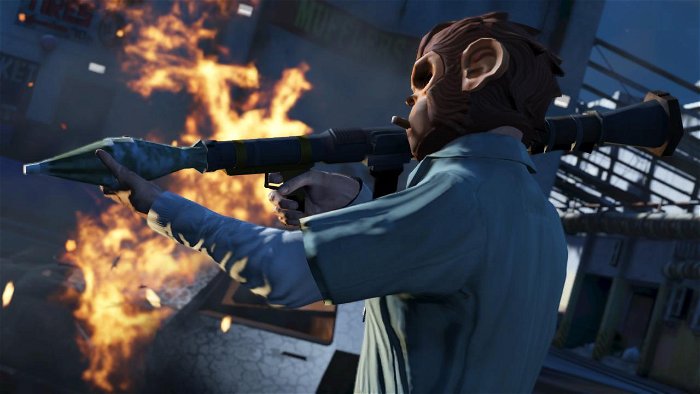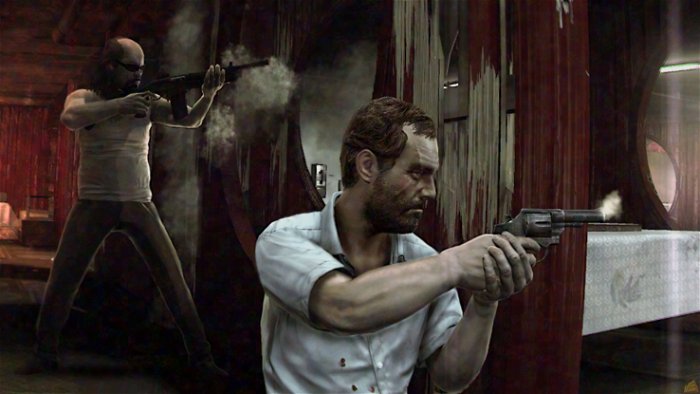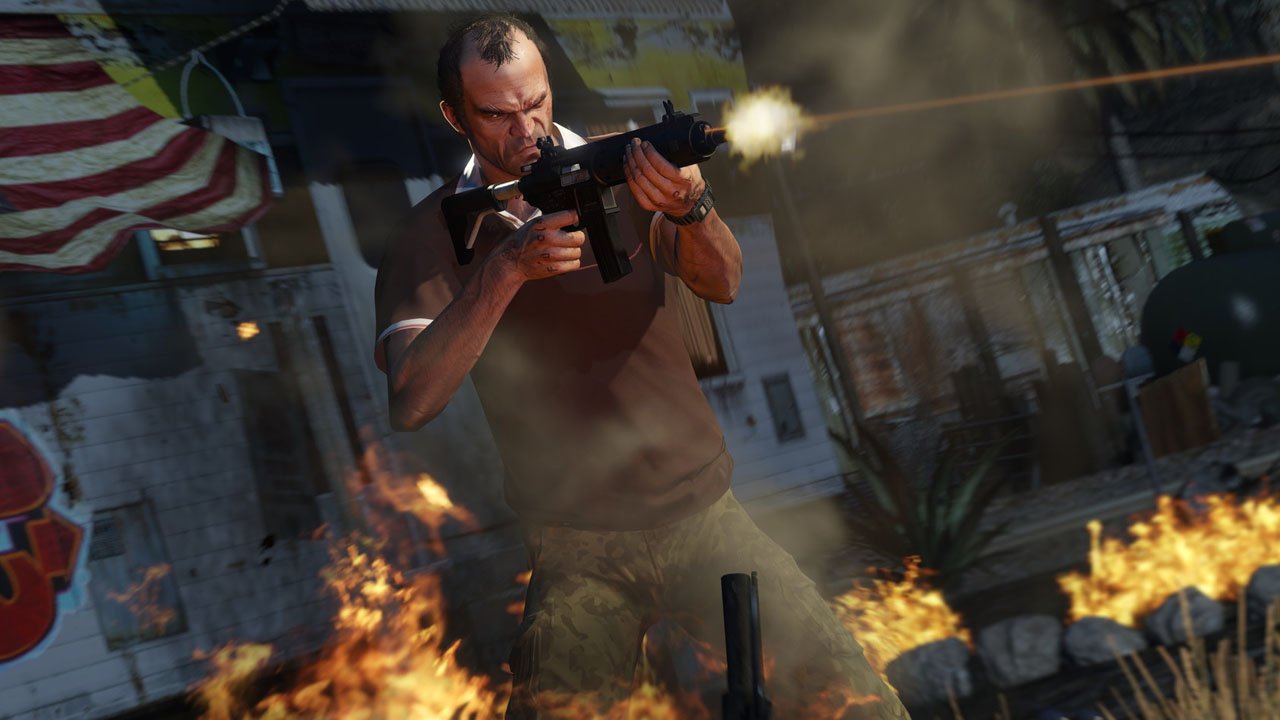In most videogames, violent crime is a good thing. Whether they’re bank robbers or just plain murderers, criminals are portrayed as anti-heroes we’re meant to root for. Though the odd title will remind players that the characters they’re controlling aren’t exactly stand-up members of society, almost every crime game wants its audience to view their actions in a favourable light.
Rockstar Games’ Grand Theft Auto series is the poster child for this phenomenon. Following several releases meant to do nothing more than simply show organized crime without comment, Grand Theft Auto IV attempted a more nuanced look at what drives the truly desperate to a life of crime. Even in this game, which follows an immigrant falling into his city’s criminal underworld in an attempt to make money, the story makes the activities he hates—murder, grand theft—seem pretty cool. In Rockstar North’s Grand Theft Auto V this tendency is made even more clear, the developer largely ignoring attempts to contextualize its characters’ violent lifestyles in favour of making their actions even more slickly impressive through missions like its elaborate heists.

Of course, there’s nothing wrong with making videogames about violent crime. There are plenty of great stories to be told within the genre and brutality is a big part of it. But, the manner in which casual criminal violence is shown should make some kind of point, even if it’s one as simple as showing the costs involved.
IO Interactive’s Kane & Lynch 2: Dog Days is one of the few games to understand this. It makes its intent immediately clear through a unique aesthetic. The game’s action, from cutscenes to gameplay, is framed as if it’s been shot on a phone camera. Shots zoom in on the two protagonists from awkward angles. Loud noises sound flat or distorted, as if the speaker is peaking while trying to process the volume. Loading screens are replaced by a buffering percentage. It may sound like a gimmick, but presenting the game in this way is key to portraying professional crime without any undue glamour.
The entire story is meant to come off as something sordid. Kane and Lynch are meeting in Shanghai not to save anyone from a conspiracy or to take revenge for some past wrong, but only because they need to make money by smuggling guns into an unnamed African country. Once they’ve found themselves embroiled in a city-wide gang conflict, their motive shifts to nothing more than survival. There’s nothing heroic about their willingness to kill the police officers and soldiers trying to put a stop to their rampage. They’re only out for themselves.

Dog Days’ willingness to throw aside the heroic arc that defines so many videogames is worth remembering. It’s a game about crime that, unlike Grand Theft Auto, absolutely refuses to make any part of its narrative come off as positive. Like a Scorsese film, IO Interactive is interested in telling a story about the cost involved in a life of crime. Its excessive violence and the attention it pays to amoral characters is the result of a developer wanting to show that gun-running, kidnapping, and murder are pretty awful things.
There’s something valuable about employing this tone. Crime stories can be a wonderful avenue for making audiences consider the desperation that can lead people to criminal behaviour. They can explore the blurry line between crime we can sympathize with and crime that repulses us. Crime fiction is capable of telling us a lot about ourselves and how our morals stand up when held against a fuller understanding of the world we live in.
But all of this comes with a caveat: violent crime shouldn’t be portrayed as something worth admiring. Most games want us to brush aside the civilians caught in the gunfire of a bank robbery gone wrong. They tell us to root for characters who kidnap helpless people for information or punch a carjack victim in the head in the middle of a street. There was a time when this sort of gameplay was gleefully subversive—a glib effort to shock players for no other reason than to shock them. But games should aim higher. They should try to tell stories that look at violent crime a bit more deeply.




